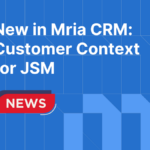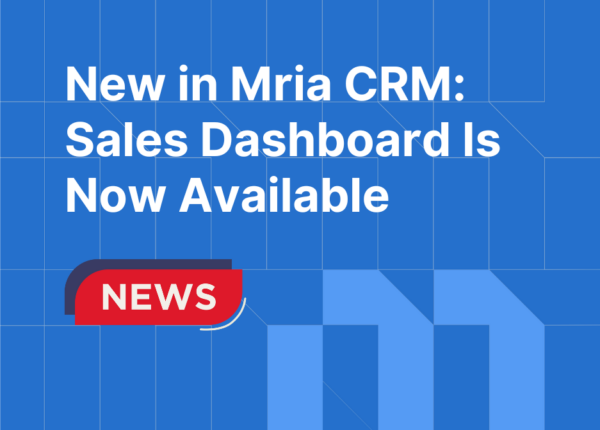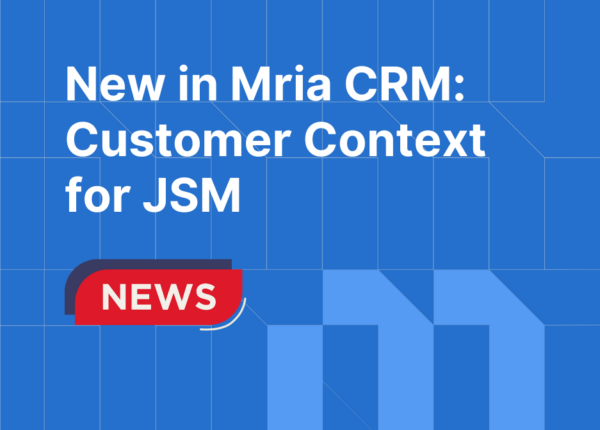Today we’re releasing the first visual preview of the four core modules that will power Mria CRM for Jira: Leads, Deals, Contacts, and Companies.
These modules form the foundation of how teams will manage customer relationships directly inside Jira. Each one is designed to support a specific part of the customer lifecycle, with a clear structure, connected data, and a familiar Jira-native experience.
This is not the complete product. What we’re showing is just a preview of what’s already built. There are more features, modules, and logic in progress, and we’ll continue to share updates as development moves forward.
We’re sharing this now because we believe it’s important to show how Mria CRM is taking shape, not just in concept, but in a real, working structure. The product is already solving core CRM needs in a way that fits how Jira teams work every day.
Here’s how it looks so far.
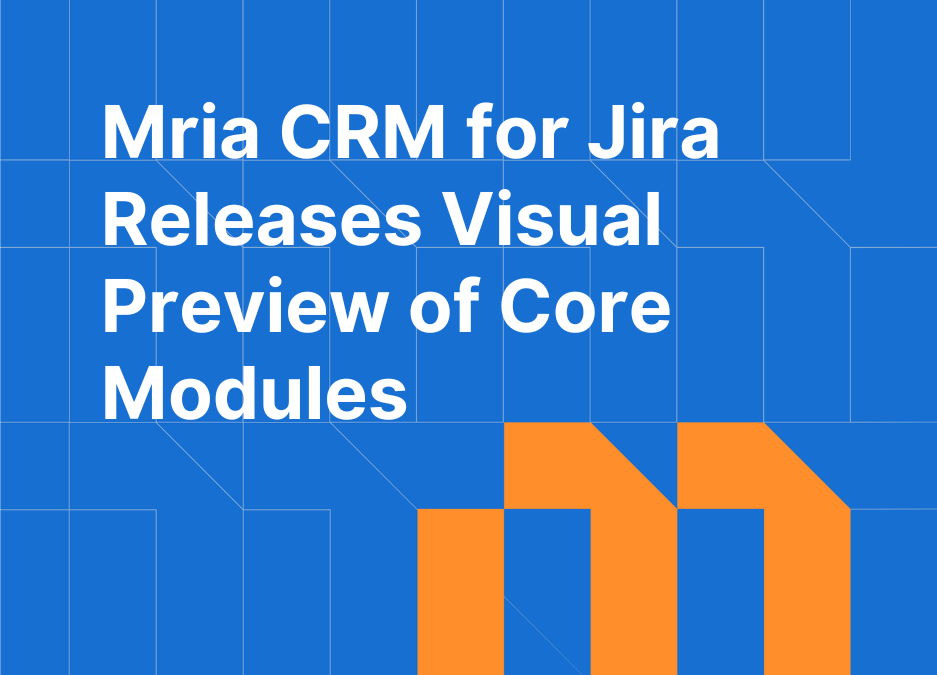
Update – September 2025
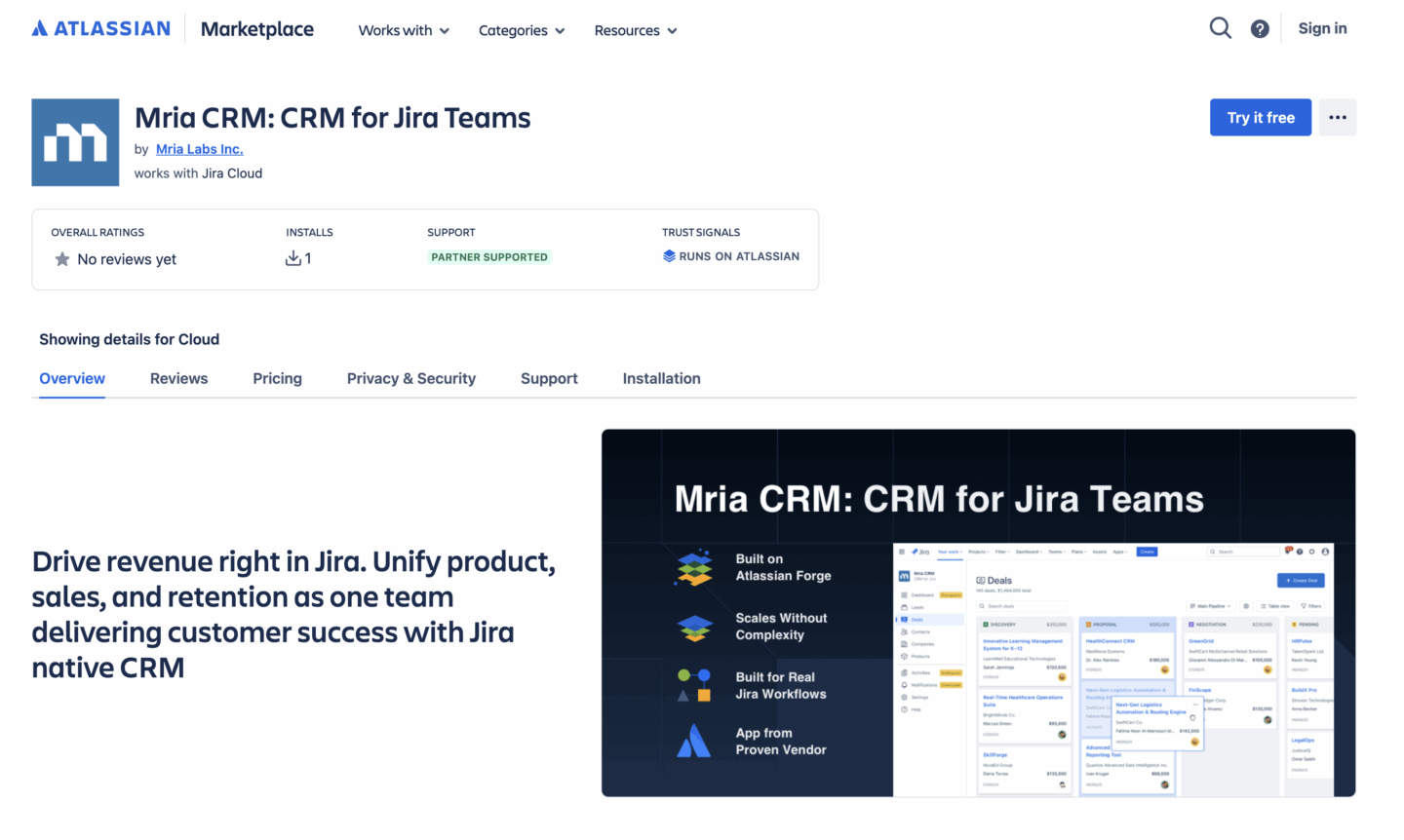
Mria CRM for Jira is now available on the Atlassian Marketplace. You can install it today and your free 30-day trial will begin automatically.
This first release includes the five core modules — Leads, Deals, Contacts, Companies and Products — making it possible to manage the full customer lifecycle directly inside Jira.
Leads Module
The Leads module helps teams collect new opportunities, track early interactions, and move qualified Leads into the pipeline. The table view is ideal for reviewing incoming Leads at scale. The full view brings together all related data for a single Lead, including linked Contacts, Companies, and activities functionality, along with the next steps.
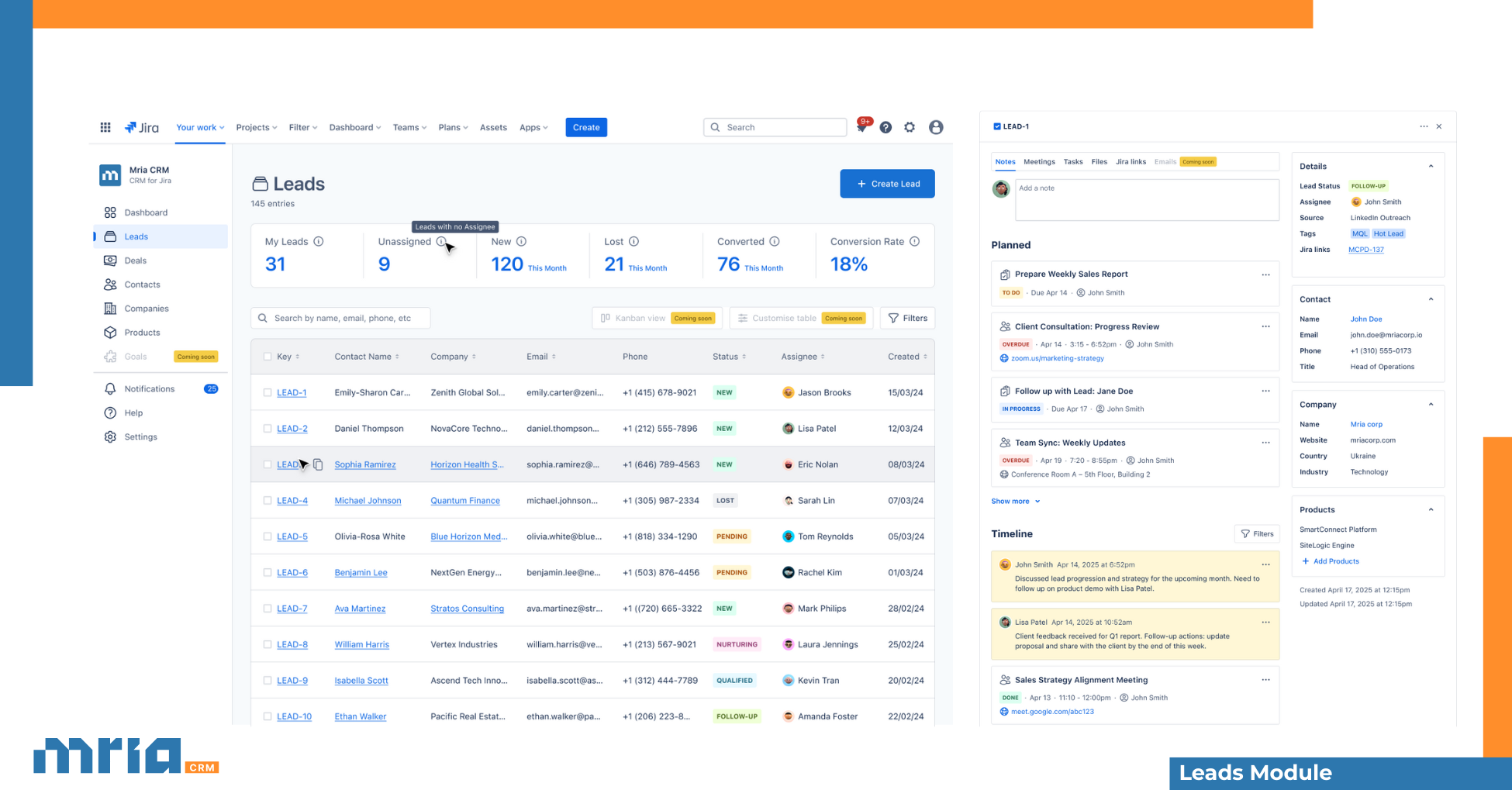
Deals Module
The Deals module is where the pipeline comes to life. The Kanban board offers a clear view of stage progress, while the table view supports filters, bulk updates, and reporting. The full view lets users manage everything related to a Deal in one place: participants, linked records, notes, and activities.
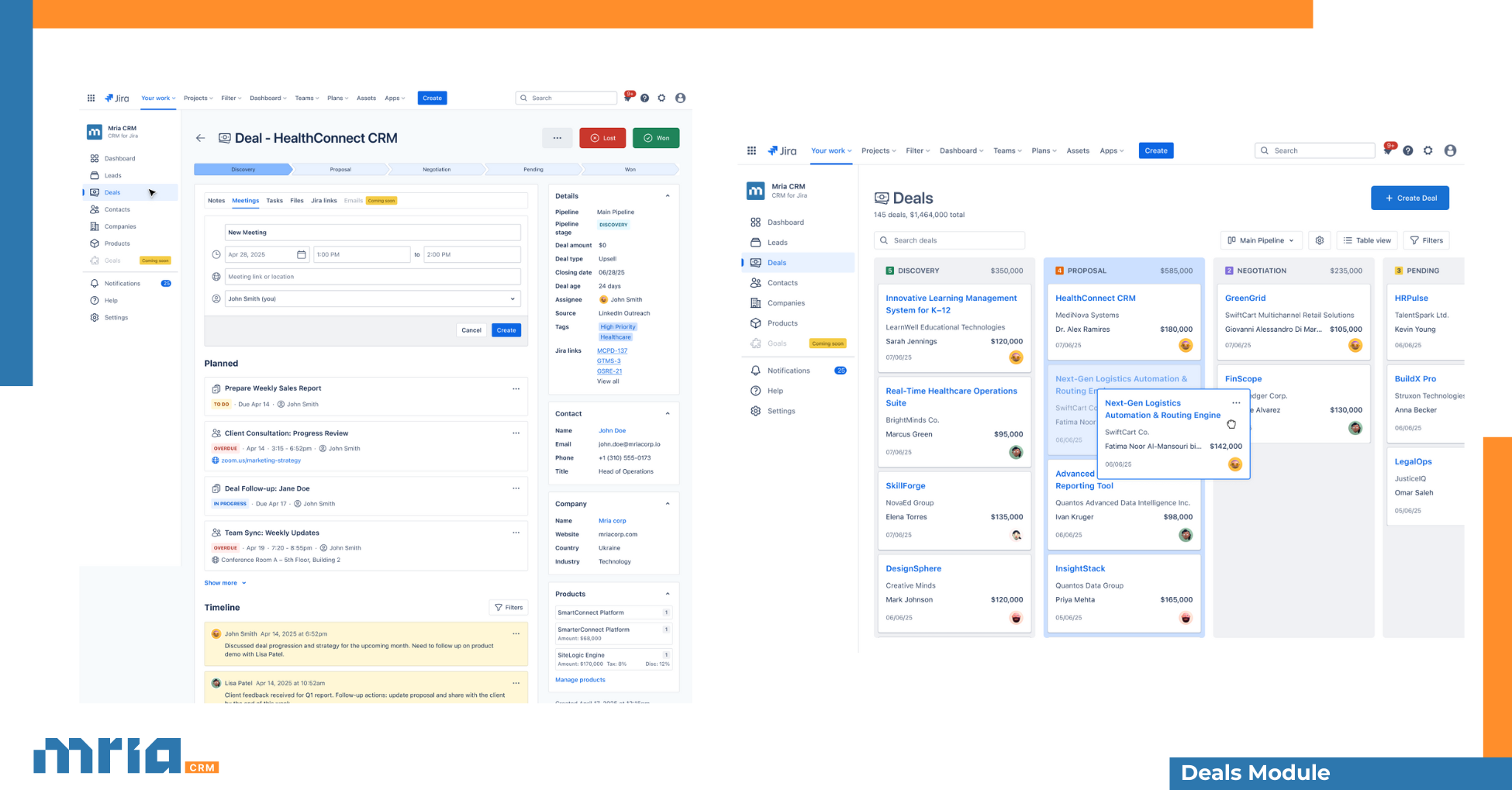
Contacts Module
The Contacts module is where you manage the real individuals involved in your sales process. These are the buyers, decision-makers, and key stakeholders connected to Leads, Deals, and Companies.
Use the table view to quickly find and organize Contacts. Open the full view to see who they are, their role in the Deal, and how they’re connected across your CRM.
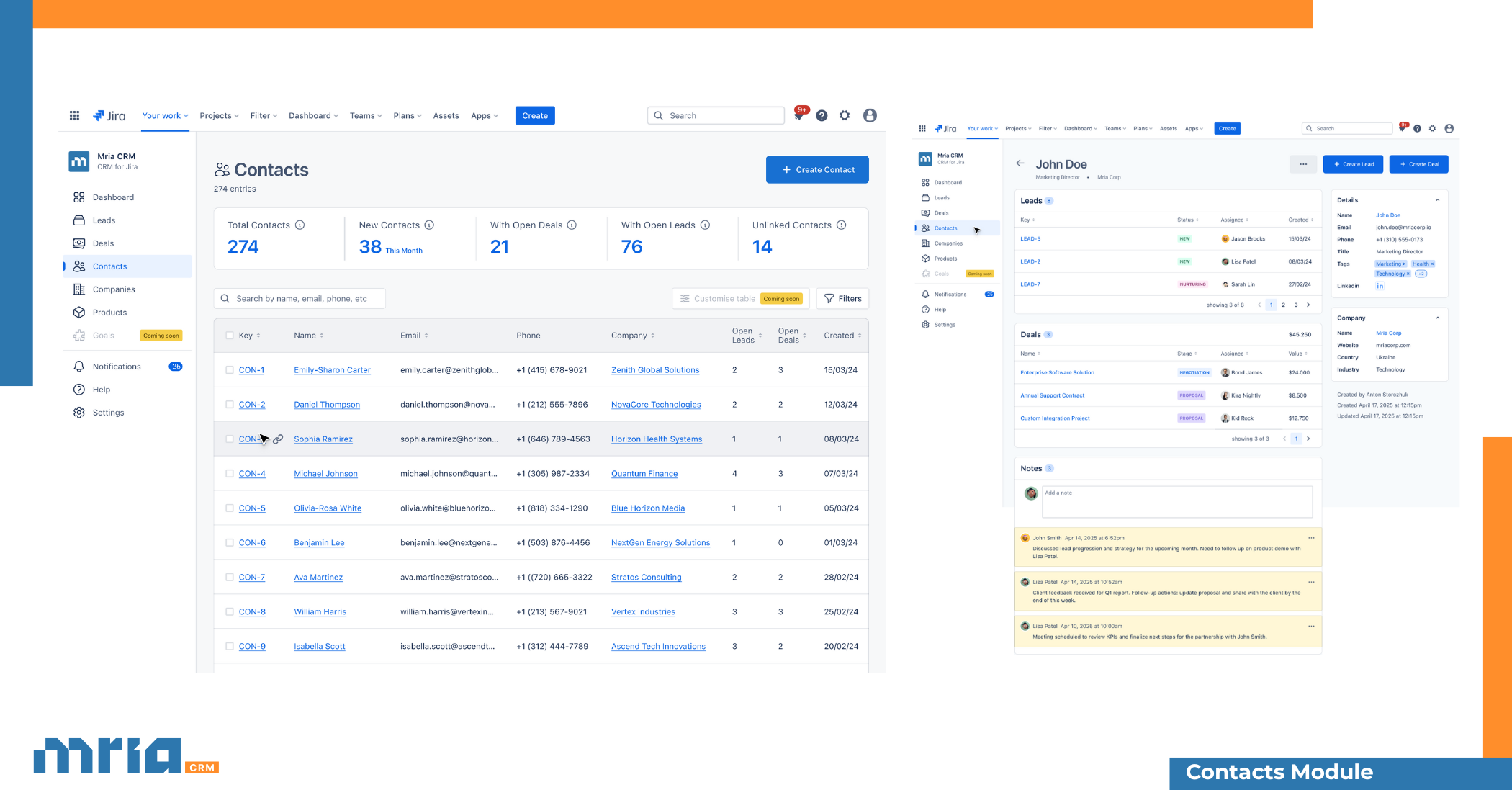
Companies Module
The Companies module gives teams account-level visibility. The table view supports structured review and segmentation. The full view brings together everything happening across that organization: associated Contacts, active and past Deals, historical interactions, etc.
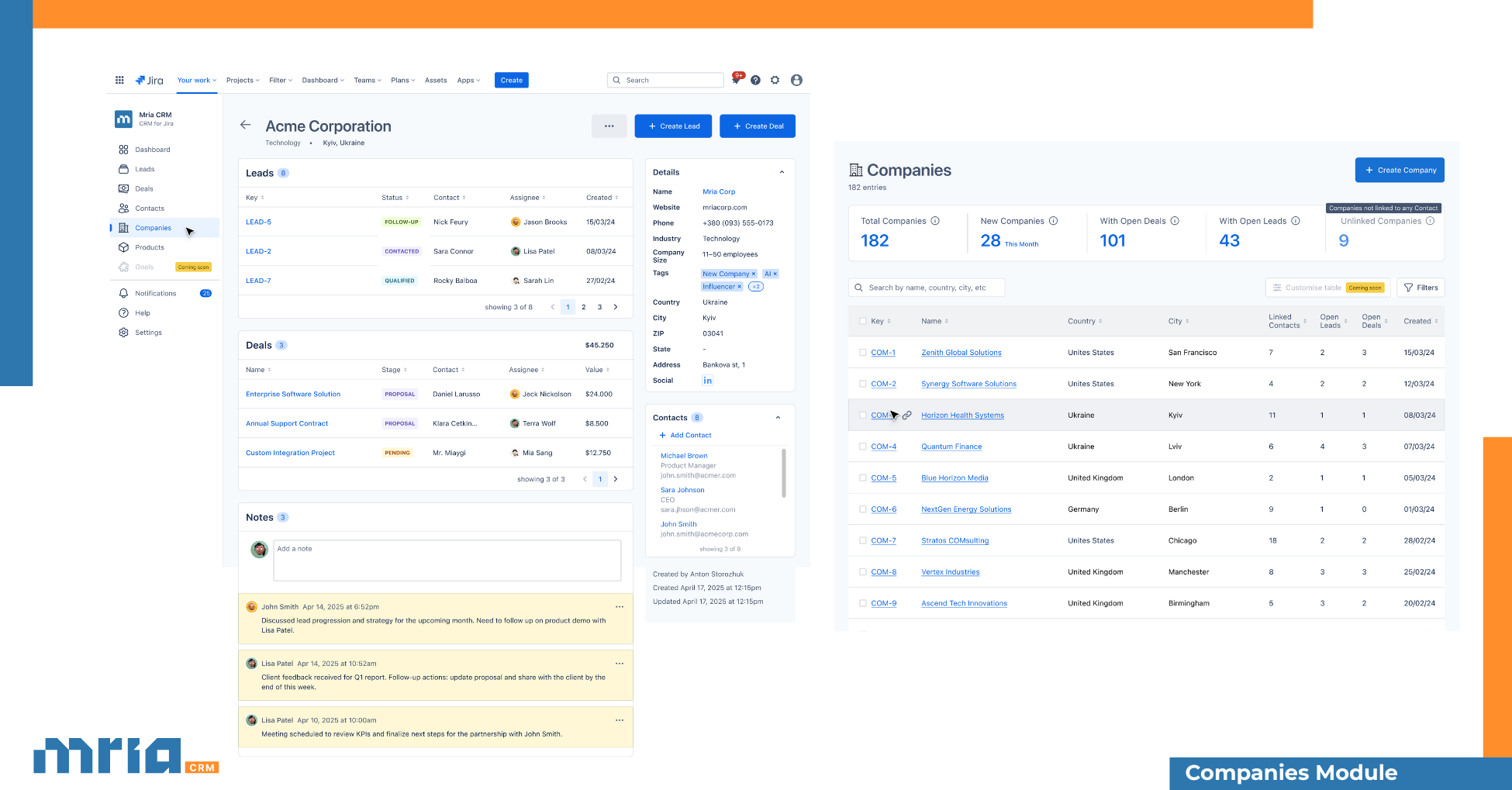
How Mria CRM Core Modules Work Together
Each module in Mria CRM is designed to support a seamless, connected workflow inside Jira. Together, they form a complete system that helps teams manage relationships and pipelines without losing context or switching tools.
- Leads can be converted into Deals in one click, with all related data transferred automatically. Notes, meetings, tasks, attachments, and linked Jira issues move with the Lead to maintain full context.
- Contacts and Companies can exist independently or be linked. When linked, you get a complete account view that includes the Company, its Contacts, their roles, and all associated Deals and Leads.
- Each Deal record includes the full relationship context. It shows the associated Company along with only the Contacts directly involved in that specific Deal.
- Activities such as meetings, tasks, notes, and Jira issues are visible across both Leads and Deals, so your team can stay informed and aligned without leaving the system.
This structure gives sales and account teams the visibility they need, while keeping everything consistent with how Jira already works. There are no complicated syncs to manage and no learning curve. You get a single system that connects the entire customer journey, from first Contact to closed Deal, in a way that feels natural to Jira users.
If you’re still wondering why a CRM should live inside Jira in the first place, we’ve outlined our perspective here:
10 Reasons You Need a CRM Inside JiraTo learn more about the product, visit the Mria CRM product page.
What’s Coming Next in Mria CRM for Jira
The four core modules of Mria CRM are just the beginning. We’re actively working on additional components and functionality to support more advanced workflows, stronger collaboration, and complete visibility across the customer lifecycle.
Here’s what’s coming next:
- Activities to track meetings, tasks, notes, and other customer interactions across modules
- Reports to analyze pipeline performance, sales outcomes, and team activity
- Jira issue integration to link CRM records directly to related Jira work, providing full context across sales, support, and delivery
- Products module for managing your catalog of services or offerings and linking them to Deals
- Main dashboard with high-level metrics and a real-time overview of CRM activity
- Notifications to keep team members informed of updates, assignments, and deadlines
- Settings for customizing Deal stages, Lead statuses, currencies, and system structure
- Permissions to define access by role and protect sensitive CRM data
This is just a preview. It’s not the full picture of what Mria CRM will offer, but we felt it was the right time to share what we’ve built so far. The feedback and interest we’ve received have been incredibly motivating, and we’re just getting started.
We’ll be sharing more in the coming months as the product evolves. Thank you for being part of the journey.
Have feedback or questions? We’d love to hear from you: Contact us here.



